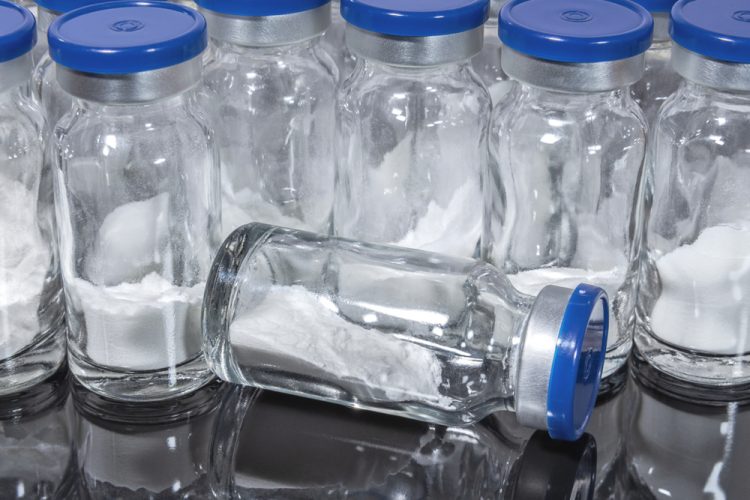Could COVID-19 vaccines be freeze dried?
Posted: 24 January 2022 | Hannah Balfour (European Pharmaceutical Review) | 1 comment
US researchers have been granted $930,000 to develop a freeze drying technique for mRNA-based COVID-19 vaccines.


Scientists from the University of Massachusetts Lowell (UMass Lowell), US, are developing a method to freeze dry messenger RNA (mRNA) COVID-19 vaccines so they can be transported and stored at room temperature.
If successful, the lyophilisation (freeze drying) process would eliminate the need for mRNA vaccines manufactured by Moderna and Pfizer-BioNTech to be stored and transported at very cold temperatures, easing supply chain issues and enabling delivery of vaccines to more people worldwide.
“Our goal is to develop a freeze drying process that can be used for mRNA-based COVID-19 vaccines to make them more stable and extend their shelf life, as well as make them easier to transport, store and use,” explained UMass Lowell Chemical Engineering Professor Seongkyu Yoon, who is leading the project with Emily Gong of Physical Sciences Inc, as well as researchers from Merck and the University of Connecticut.
The work is being conducted in UMass Lowell’s Lyophilization Research Bay (LyoBay), a state-of-the-art facility on the East Coast, which opened in 2019 inside the university’s Mark and Elisia Saab Emerging Technologies and Innovation Center.
The aim of the research is to freeze dry mRNA COVID-19 vaccines to demonstrate the new production method is sound. The study is funded through a one-year, $930,223 grant from the National Institute for Innovation in Manufacturing Biopharmaceuticals (NIIMBL), a Manufacturing USA network institute that works to advance US leadership in biopharmaceutical manufacturing and accelerate innovation.
Currently, recommend storage temperatures for Comirnaty® (Pfizer/BioNTech’s vaccine) are between -80 and -60°C, requiring ultra-low temperature freezers, and between -50 and -15°C for Spikevax (Moderna’s COVID vaccine) to keep their ingredients stable and ensure the vaccines’ viability.
Freeze drying enables a product to be stored as a powder at room temperature and then reconstituted before use. The process removes water from sensitive, perishable materials by freezing the substance, then reducing the air pressure and adding low heat to allow the frozen water in the material to change directly from ice to vapour without melting. In contrast, conventional dehydration uses high heat to evaporate the water, which would damage the mRNA in these kinds of vaccines.
“So far, none of the COVID-19 vaccines has been able to be stored at room temperature, which makes our approach unique and very attractive,” Yoon stated. The team hopes the project will enable a more rapid response to the coronavirus by creating a stockpile of thermally stable, freeze-dried vaccines that is ready to be shipped and distributed even to remote, rural areas without the need for ultracold freezers.
The researchers concluded that they hope to one day apply the technique to vaccines that fight other diseases as well.
The research is being performed under a Project Award Agreement from NIIMBL and financial assistance award 70NANB21H085 from the US Department of Commerce, National Institute of Standards and Technology.
Related topics
Biologics, Biopharmaceuticals, Drug Manufacturing, Drug Safety, Freeze Drying, mRNA, Research & Development (R&D), Supply Chain, Sustainability, Vaccine Technology, Vaccines
Related organisations
BioNTech, Merck, Moderna, National Institute of Standards and Technology (NIST), Pfizer, The National Institute for Innovation in Manufacturing Biopharmaceuticals (NIIMBL), University of Connecticut (UConn), University of Massachusetts Lowell (UMass Lowell)










TFF Pharmaceuticals has a method that has been tested for shelf life and reconstitution.